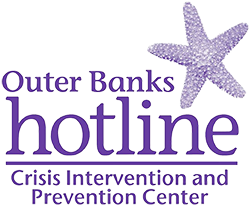The Effect of Domestic Violence on Children
Domestic Violence impacts all members of the family, including children. Even if the children don’t see or hear the abuse, they will experience its aftermath – the victim’s injuries, broken bones and bruises or the broken furniture and damages to the home. They feel the tension in the household and can see the look of fear in the victim’s eyes. Resilience, the ability to get up after a fall and go forward with hope and confidence, is the critical factor necessary for children to go on and lead normal healthy lives.
Effects of Children Witnessing Violence - Behavior
Children who witness domestic violence are:
- More likely to exhibit fearful and inhibited behaviors
- More likely to exhibit aggressive and antisocial behaviors
- More likely to show less social competence
- More likely to have anxiety, self-esteem, anger and temperament problems
- More likely to approve violence (boys)
- More likely to attempt suicide
- More likely to abuse drugs and alcohol
- More likely to run away from home
- More likely to engage in teen prostitution
- More likely to commit sexual assault crimes
Source: Edelson, J. I. (1999) Problems with Children witnessing domestic violence. Wolfe, D.A. er al (1998) Strategies to address violence in the lives of high risk youth. Effects by age Group
Infants – Age 3
- Physical problems (frequent colds, diarrhea)
- Excessive screaming or irritability
- Problems falling asleep
- Developmental delays (not gaining weight, not eating)
- Anxiety, sadness, crying, emotional withdrawal
Ages 3 – 7
- Delayed language development
- Regression to infant-like behavior such as thumb sucking
- Difficulty getting along with others
- Hostility and aggression
- Defiant and destructive behavior
- Clinging behavior
- Fear
- Self-banning and feelings of guilt
Ages 7 -13
- Low self-esteem
- Conflicted feelings about the abuser
- Increased aggression towards peers, siblings and parents
- Delinquent behavior (stealing, fighting, using drugs)
- Patterns of blaming others for his/her behavior, especially parents
- High levels of anxiety and anger
- Inappropriate belief that violence can resolve a conflict
- Protective behavior towards the victim
- Violence against the victim
- Sense of responsibility to care for the younger siblings
- Running away
- Patterns of truancy
- Substance abuse problems
- Promiscuous behavior
Additional Effects – All Age Groups
- Increased emotional needs
- Difficulty adjusting to school
- School phobias (might fear of leaving victim alone)
- Somatic problems (asthma, peptic ulcers, chronic headaches, abdominal cramps)
- Eating disorders
- Patterns of increased deceptiveness (excessive lying, stealing, cheating)
- Inclination to kill or mutilate animals
- Inability to trust and develop relationships
- Low tolerance for frustration
- Self-destructive behavior, self-mutilation
- Memory of every detail of abuse
- Blames the victim for the abuse, pressures him/her to make things better
- Poor sexual image
- Low self-esteem
- Bed wetting
